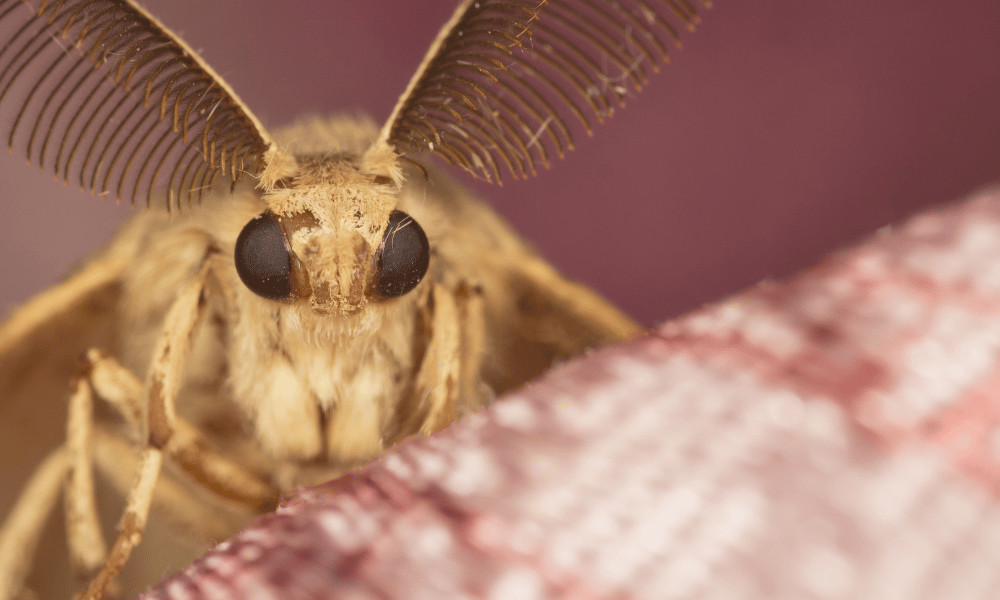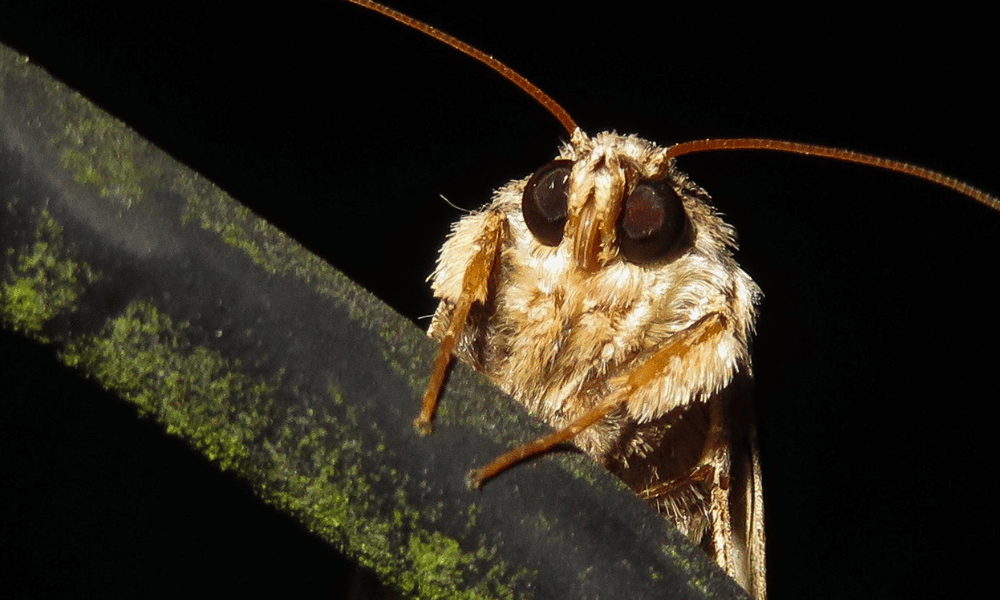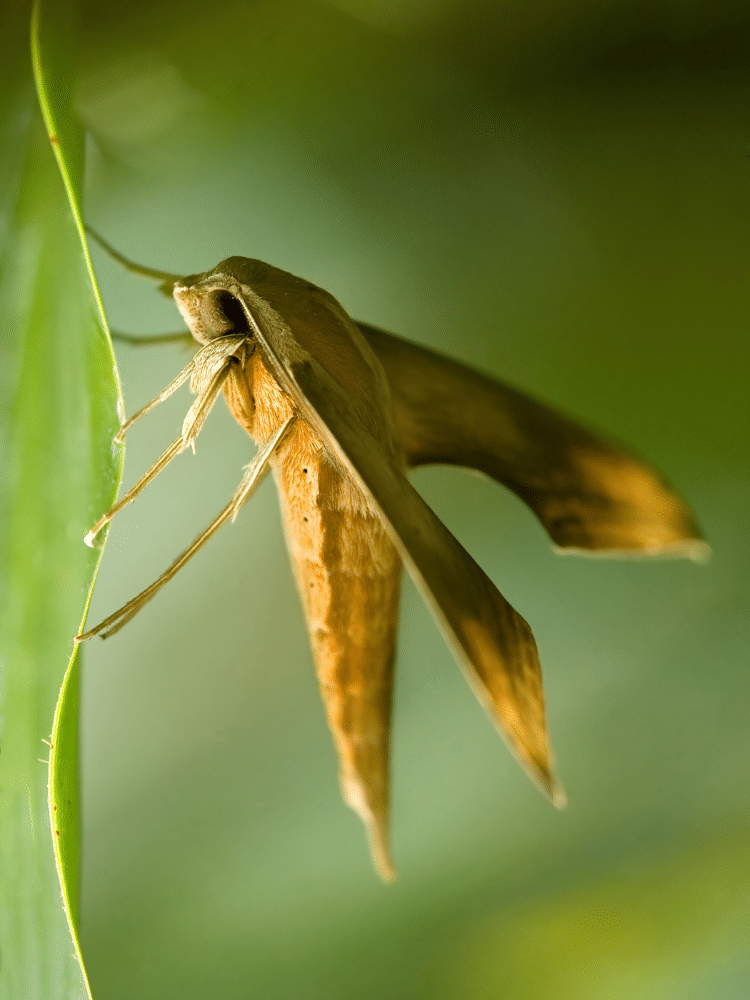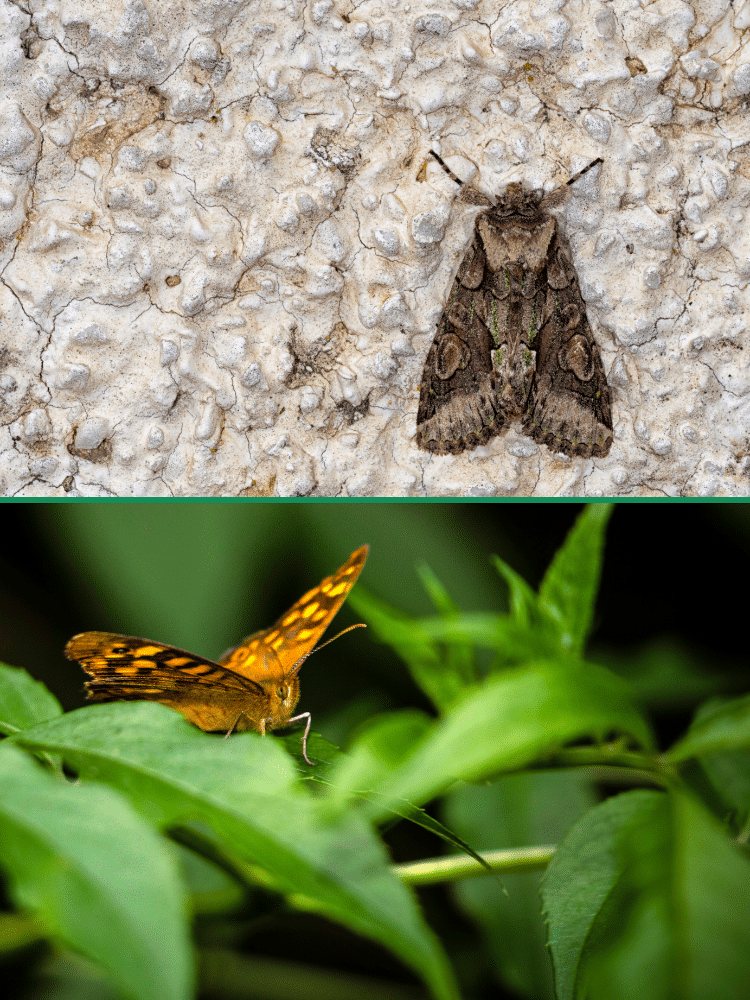Insects are vastly different from animals or humans. From their life cycles to their looks and everything in between. But what about on a fundamental level? Do moths have brains?
Yes, moths do have brains. They also have a central nervous system. While both of these structures are incredibly basic and very tiny, they are necessary and help the moth survive.
Without a brain or nervous system, the moth could not communicate with their wings or legs, making it impossible to move or fly.
Their brains will interpret stimuli that are gathered from their other senses, like eyes or their sense of smell. These senses help the moth find food and mates and shelter themselves from predators.
Do Moths Have Feelings?
When we think of feelings, there are a few different ways we can view them. The first thing that comes to many of our minds when we talk about “feelings” is emotions.
Since we “feel” emotions, many people will say “feelings” when discussing these complex and exciting reactions within our bodies.
As a whole, humanity has a hard time grasping its own feelings. But still, we go and theorize the emotions of other nonhuman creatures like pets or wild animals. But what about bugs? Do moths have feelings?
Moths do not have emotions.
Scientists have completed many studies that show that bugs do not experience emotions. They live in a very primal state of being, often only being pulled by their natural instincts to eat and mate before they die.
Emotions aside, can bugs feel physical pain? When we step on a bug or see a moth with a broken wing, we tend to feel sad or guilty. However, we are the only ones feeling, well, anything.
Moths Cannot Feel Pain
Moths do not have pain receptors in their bodies. Thus, when a moth is badly injured, they most likely can sense that they are damaged, but it will not cause them pain.
How Smart are Moths?
Moths may not be the first animal we think of when we are naming off the smartest of the bunch. Dolphins, dogs, and even pigs tend to top the list. But what about moths? How bright are moths?
Moths are more intelligent than you might think!
Not only do they have excellent senses and the ability to dodge, dart, and fly quickly as adults to evade predators and find mates, some scientists have even discovered that adult moths can remember things from their caterpillar days!
This finding is astounding, especially since the caterpillar will turn entirely to goo while in the cocoon. During this time, the moth will completely rebuild itself into the winged adult creature we all know.
Memories aside, moths can quickly search for food, shelter, and mates. Their senses always allow them to know which way is up, how close a flower or food source is, and even find a mate up to 7 miles away!
How Big are Moth Brains?
Moths are incredibly tiny creatures. Even in the case of moths with large wingspans, their bodies are teeny tiny. With such limited space, their brain would not be very large.
Moth brains are about the size of a pinhead or less than a cubic millimetre.
Moth brains are simple structures that lack different lobes like the human brain. Their brain also has only about 1 million neurons, compared to the 90 billion neurons in a human brain.
Even though the brain is small and limited in capacity, it still provides some very complex things for the moth.
Brains are the intelligence centre of the body and the central command in the nervous system.
Even though moths have a rudimentary nervous system and brain, they can sense their direction, always know which way is up, smell their mate’s pheromones from great distances, and sense predators and danger in ways that humans can’t.

Summary
Moth brains are small and simple structures that provide all of the essential functions a moth needs to survive and reproduce. Moths also have a central nervous system that is basic and connects to the different parts of their body.
Between the central nervous system and the brain, moths can send and receive stimuli that help them gather information about the world around them. It also enables them to walk, fly, and do other essential body functions.








Ok so not a moth yet, but my Polyphemus caterpillar, just started to spin her cocoon. Ok, so instead of spinning in a leaf, like the other two she explored the entire cage. I had a seashell with a hinge, that I filled with rocks, that was filled with water, in case they needed more, then the droplets on the leaves, that I gave them, every morning, due to the heat. She not only went to the caterpillar, who she had tussled with days prior, and ripped all the leaf cover, exposing her cocoon. She was opening and closing the shell, but there was no room inside, she has moved every single rock from inside, and is spinning it closed as she makes her cocoon. Surely this is intelligence.